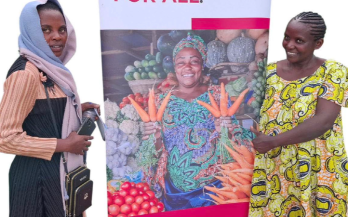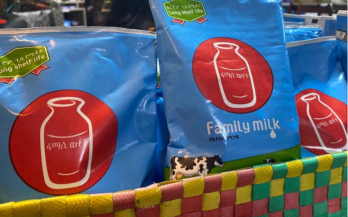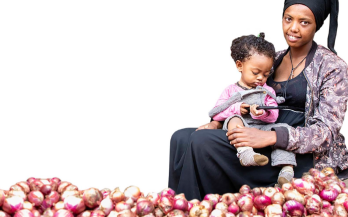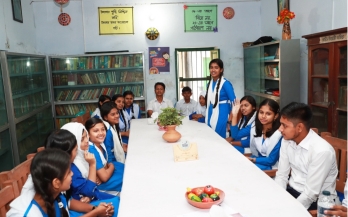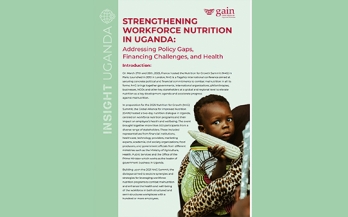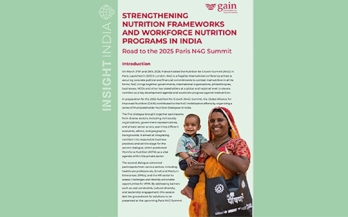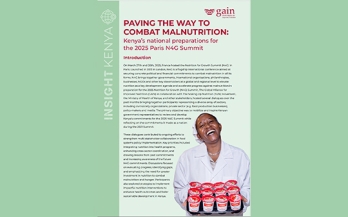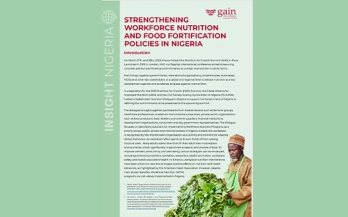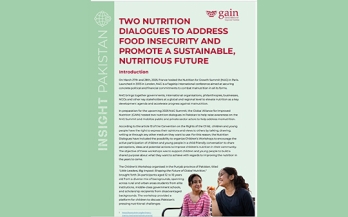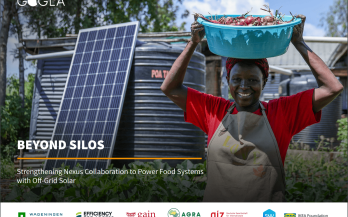This brief aims to
1. Describe the micronutrient malnutrition and LSFF programme context in Rwanda;
2. Identify challenges and opportunities to strengthen existing programs;
3. Provide practical, evidence-informed policy and programmatic recommendations; and
4. Catalyse multi-stakeholder collaboration to reduce micronutrient deficiencies.
Milk is a commonly consumed food in Low- and Lower-Middle Income Countries (LLMICS). It contains many important nutrients and generally appears, together with its derived products, in national dietary guidelines. But objections have been raised to its promotion on several grounds: health, environmental, animal welfare, and affordability. This Discussion Paper reviews commonly presented arguments in favour of and against consumption of dairy, taking into account the specific contexts of LLMICs.
These fact sheets look at the roles that can be played by different stakeholders seeking to improve food systems and nutrition in Ethiopia.
• Stakeholders from diverse groups have a role to play in transforming Ethiopia’s food system to address complex challenges arising across the supply chain that contribute to food insecurity and malnutrition.
• Each stakeholder group must take steps towards enhancing collaboration, aligning efforts, and working to deliver a more sustainable and resilient food system for the country.
• Key recommendations include strengthening government commitment, mobilising financial and technical resources, building capacity across different groups, setting up accountability mechanisms, boosting inclusivity of decision-making processes, leveraging technology and innovation, and conducting periodic assessments to identify emerging challenges and opportunities.
While there is a growing recognition of the importance of youth engagement in food system decision-making and governance, existing research remains largely theoretical or anecdotal, with a scarcity of empirical studies providing robust data on the engagement and meaningful participation of young people in food systems. A first step towards providing such data is having strong, validated metrics and data-collection methods that can be applied comparably across contexts. This scoping review thus synthesises evidence on metrics and methods used to assess youth engagement in policy processes, with a specific focus on food system-related policies.
On March 27th and 28th, 2025, France hosted the Nutrition for Growth Summit (N4G) in Paris. Launched in 2013 in London, N4G is a flagship international conference aimed at securing concrete political and financial commitments to combat malnutrition in all its forms. N4G brings together governments, international organisations, philanthropies, businesses, NGOs and other key stakeholders at a global and regional level to elevate nutrition as a key development agenda and accelerate progress against malnutrition. In preparation for the 2025 Nutrition for Growth (N4G) Summit, the Global Alliance for Improved Nutrition (GAIN) hosted a two-day nutrition dialogue in Uganda, centred on workforce nutrition programs and their impact on employee’s health and wellbeing.
On March 27th and 28th, 2025, France hosted the Nutrition for Growth Summit (N4G) in Paris. Launched in 2013 in London, N4G is a flagship international conference aimed at securing concrete political and financial commitments to combat malnutrition in all its forms. N4G brings together governments, international organisations, philanthropies, businesses, NGOs and other key stakeholders at a global and regional level to elevate nutrition as a key development agenda and accelerate progress against malnutrition.
On March 27th and 28th, 2025, France hosted the Nutrition for Growth Summit (N4G) in Paris. Launched in 2013 in London, N4G is a flagship international conference aimed at securing concrete political and financial commitments to combat malnutrition in all its forms. N4G brings together governments, international organisations, philanthropies, businesses, NGOs and other key stakeholders at a global and regional level to elevate nutrition as a key development agenda and accelerate progress against malnutrition.In preparation for the 2025 Nutrition for Growth (N4G) Summit, The Global Alliance for Improved Nutrition (GAIN) in collaboration with The Scaling Up Nutrition (SUN) Movement, the Ministry of Health of Kenya, and other stakeholders, hosted several dialogues over the past months bringing together participants representing a diverse array of sectors, including civil society organizations, private sector (e.g. food production businesses), policy-makers and media. The primary objective was to mobilize and inspire Kenyan government representatives to review and develop Kenya's commitments for the 2025 N4G Summit while reflecting on the commitments it made as a nation during the 2021 Summit.
On March 27th and 28th, 2025, France hosted the Nutrition for Growth Summit (N4G) in Paris. Launched in 2013 in London, N4G is a flagship international conference aimed at securing concrete political and financial commitments to combat malnutrition in all its forms. N4G brings together governments, international organisations, philanthropies, businesses, NGOs and other key stakeholders at a global and regional level to elevate nutrition as a key development agenda and accelerate progress against malnutrition. In preparation for the 2025 Nutrition for Growth (N4G) Summit, the Global Alliance for Improved Nutrition (GAIN) and the Civil Society Scaling Up Nutrition in Nigeria (CS-SUNN) hosted a Stakeholder Nutrition Dialogue in Nigeria to support the Government of Nigeria in defining the commitments to be presented at the upcoming summit.
On March 27th and 28th, 2025, France hosted the Nutrition for Growth Summit (N4G) in Paris. Launched in 2013 in London, N4G is a flagship international conference aimed at securing concrete political and financial commitments to combat malnutrition in all its forms.
N4G brings together governments, international organisations, philanthropies, businesses, NGOs and other key stakeholders at a global and regional level to elevate nutrition as a key development agenda and accelerate progress against malnutrition. In preparation for the upcoming 2025 N4G Summit, the Global Alliance for Improved Nutrition (GAIN) hosted two nutrition dialogues in Pakistan to help raise awareness on the N4G Summit and mobilize public and private sector actors to help address malnutrition.
This white paper explores the nexus between food systems, infrastructure and energy provided by off-grid solar (OGS) systems.8, 9, 10 The efficiency, sustainability, and productivity of food systems are deeply intertwined with energy use.11 The agricultural sector accounts for 30% of global energy consumption and requires power for food production, storage, transportation and processing. The infrastructure used to power food systems is heavily reliant on fossil fuels, accounting for at least 15% of fossil fuel use globally.12 However, in sub-Saharan Africa, agricultural production consumes significantly less energy than the global average. This limits opportunities for value addition, increases food waste due to inadequate storage and processing facilities, and contributes to low agricultural yields.
